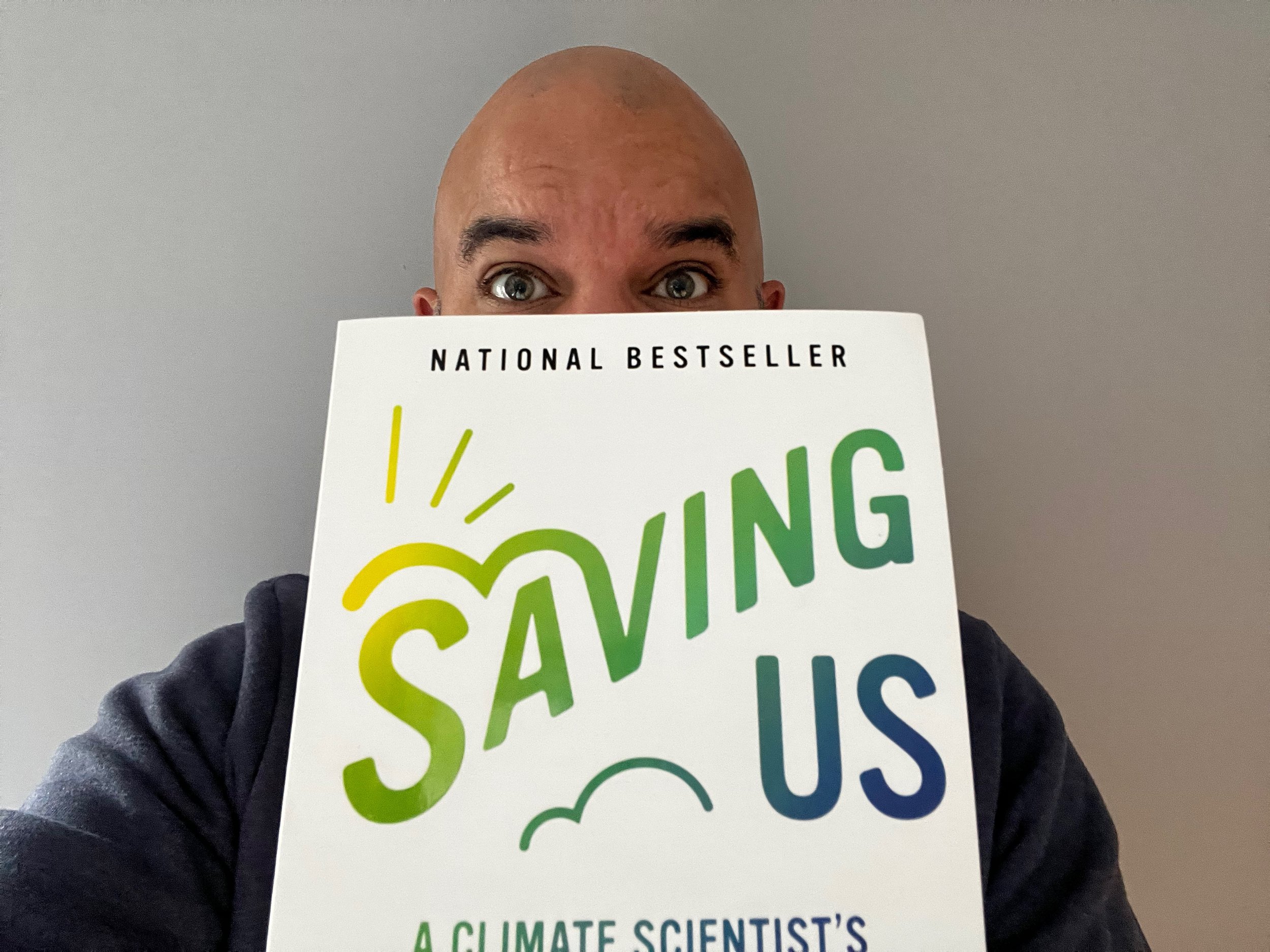Book Review: Saving Us by Katharine Hayhoe
She's been called "Communist, libtard, lunatic; Jezebel, liar, and whore; high priestess of the climate cult and handmaiden of the Antichrist."
Who is this? And more importantly, what has she done to deserve these insults?
Katharine Hayhoe is a climate scientist using her talents, abilities, and knowledge to teach and empower people to take care of the world. She's a brilliant communicator that can take a vast, daunting subject like climate change and make it accessible for people like me. I've read books on climate change before, but this one stands out because she brings in a perspective that's often left out. In addition, she actively brings the importance of her faith into the conversation. That doesn't seem that bad, does it? As a Christian, I'm inspired by someone like Katharine Hayhoe, who is making a difference in the world and finding a growing audience.
Her latest book, "Saving Us: A Climat Scientist’s Case for Hope and Healing in a Divided World," is the first book I read this year. I'm glad I did because I found it inspiring on many different levels. As I mentioned earlier, this is a daunting subject for me, and I often feel like I've got little say on the issue of climate change. I'm not a scientist, and this is an area I've only started to look into over the last 3-4 years. I'm very late to the party on this, and I have to admit, it's an intimidating party to join.
But I do care. Here's a quick list of things I care off the top of my head.
If you care about any one of these, you have a stake in the issue of climate change. What Katharine Hayhoe does so well is that she quickly moves the conversation from climate change to shared values. While the book has plenty of facts and explanations, the value for me is in her challenge not to let the enormity of the issue stop me from learning and engaging.
It is also helpful that she offers advice on how to have meaningful dialogue with others who don't believe or care about climate change. Early in the book, she spends a good deal of time explaining the psychology around how we interact with environmental science. She addresses how fear, anger, and shame often enter into debates and how we need to frame conversations outside of those emotions. More constructive interactions happen when they start from a place of shared values. Someone might not be receptive to talking about ice melting in the arctic, but they may want to talk about the challenges that farmers are going through. In this example, they are both climate change related, but the approach of the discussion is different. It's that hospitable meeting in the middle where change can happen for all of us.
The book is challenging, informative, funny, and encouraging all at once. If you're looking for a book that will introduce you to the subject of climate change or a book that will encourage you if you've been on this journey for years, give this book a read.

